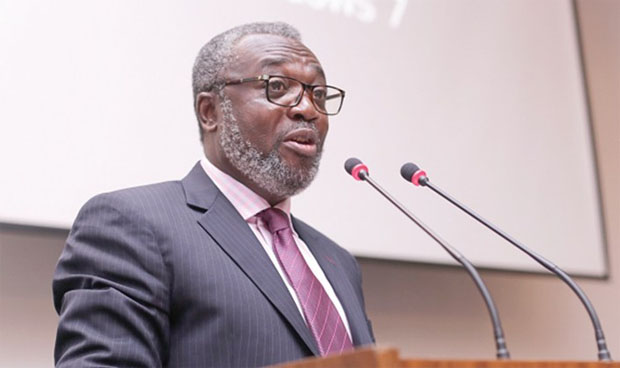Dr Anthony Nsiah-Asare – Director General, Ghana Health Service
The National Polio Laboratory at Noguchi Memorial Institute for Medical Research, has confirmed a case of Poliomyelitis in the Chereponi District of the Northern Region.
The viral disease was detected in a sample of a two year, eight month old girl with Acute Flaccid Paralysis (AFP) from Andonyama, a sub-district in Chereponi.
A statement released by the Ministry of Health (MoH) and Ghana Health Service (GHS) indicated that the child was seen at Chereponi District Hospital on July 27, 2019 with sudden onset of weakness in both lower limbs.
“ Stool samples were taken as part of routine polio surveillance on 27th July, 2019 and sent to the National Polio Laboratory for laboratory investigations and the sample tested positive as per result received on 17th August, 2019,” a statement signed by Director General GHS, Dr Anthony Nsiah Asare said.
Dr. Nsiag Asare said the case is being managed at the Chereponi District Hospital in the Northern Region.
Interventions
In response, the MoH and GHS indicated that a national team has been deployed to assist the regional / district teams to carry out detailed investigation.
“The mapped out areas at risk and conduct reactive vaccination campaign in the affected and adjoining high risk districts following approval from the Polio Advisory Group for monovalent Oral Polio Vaccine type 2 (mOPV2), ” he said.
Dr. Nsiah-Asare, said thr event at Chereponi constitutes a Public Health Emergency of National Concern.
Poliomyelitis (Polio) is a highly infectious disease which mainly affects young children and children under five (5) years of age are most at risk.
The infections spreads from person to person, mainly through the oro-faecal route, multiplies in the intestine, from where it subsequently invades the nervous system and can cause paralysis most often in the limbs.
Symptoms of polio include at the early stage inlude fever, fatigue, headache, vomiting, neck stiffness and pains in the limbs and has the potential to cause paralysis of the limbswhich can be permanet.
People who live in areas with poor sanitation are at high risk of contracting polio.
Treatment is mainly supportive and can be prevented by vaccination, improved sanitation and personal hygiene.
Vaccination is available and is the main form of prevention.
Directions
Parents and care-givers are advised to ensure that, their children receive the full complement of vaccinations.
The general public is also requested to practice good personal and environmental sanitation.
For the safety and well-being of children, parents are advised to observe closely symptoms of polio in their children and report to the nearest health facility for immediate medical attention.
The District, Municipal and Metropolitan Assemblies are reminded of their role to ensuring sanitation by -laws are strictly enforced.
By Jamila Akweley Okertchiri


